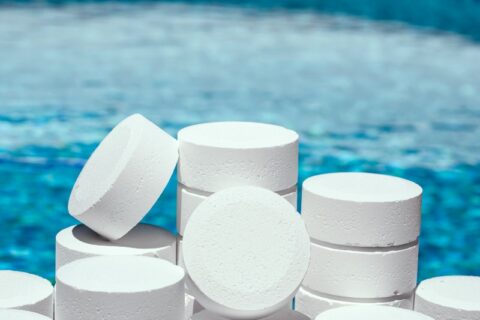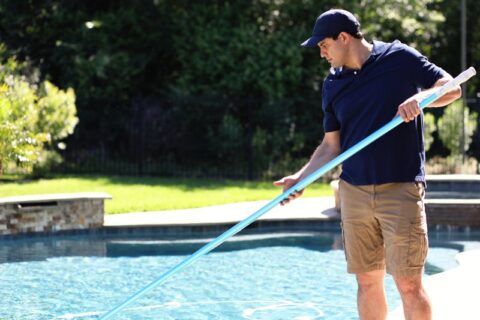Pool Chemistry to Extend Your Pool’s Life
Pool season has arrived! Before you jump in, make sure the pool chemistry is right. Achieving the proper balance of chemicals is critical to keep the water clean and safe while protecting the pool finish and equipment. Follow these tips to save time, lower costs, and extend your pool’s life.
Conduct a Site Inspection
This preliminary step helps you determine if any damage to the pool might be preventing circulation or require additional treatment. Check the walls for rough patches, look for algae or rust stains on the bottom of the pool, and document any cracks or discoloration you find in the pool’s finish. These are all issues that stem from chemical imbalances.
If you come across any major problems during this inspection, contact a pool maintenance company for help. A professional can determine the severity of the situation and offer a cost-effective solution.
Skim and Vacuum the Pool
It’s important to clean the pool regularly to maintain a balanced chemistry. Plan to skim leaves and other organic debris from the surface daily and vacuum the pool once a week to remove dirt, algae, and debris that has fallen to the bottom.
Test the Water
At the start of the season, it’s wise to take a water sample to your local pool retailer for professional testing. This gives you a good starting point for getting your pool ready for summer. To collect the most accurate sample possible, fill a water bottle from at least 18 inches below the surface.
Once the season is underway, you’ll need to test the pool two to three times a week to ensure optimal swimming conditions. Here are the levels you’re looking for:
- pH:2 to 7.6
- Chlorine: 0 to 2.0 parts per million (ppm)
- Total alkalinity: 120 to 150 ppm
- Calcium hardness: 175 to 225 ppm for vinyl pools; 200 to 250 ppm for gunite or concrete pools
- Cyanuric acid: 20 to 50 ppm
- Total dissolved solids: Below 5,000 ppm
The most convenient way to frequently test your pool is with an at-home test kit. However, we recommend professional testing every week or two as part of your routine pool maintenance to make sure you’re not overlooking anything important.
Maintain or Adjust the Pool Chemistry
Numerous pool chemicals are needed to adjust the chemistry properly, including sanitizers, oxidizers, water balancers, and specialty products. You must also know the volume of your pool to accurately calculate how much of each chemical is required to achieve the ideal balance.
If you feel overwhelmed at the prospect of testing and adjusting your pool water, leave the chemistry to Millennium Pool Service. We have over 35 years of combined industry experience and can make sure your pool is safe and fun to swim in. We even include chemicals in our pool maintenance packages, so you don’t have to worry about storing them on-site! Contact us at 703.939.5062 in Virginia or 301.591.3750 in Maryland to learn more or to schedule your next


